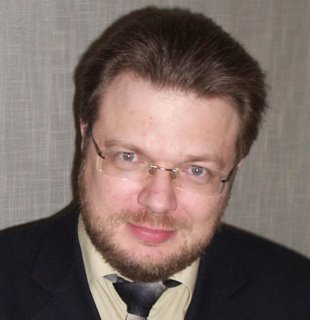Bazalgette's Mobile Dis-Content
(c) UnStrung
MONTE CARLO, France -- Mobile Entertainment Market 2007 --
Big content providers say mobile operators must open up their networks and simplify data tariffs to make the mobile entertainment market grow.
"Two years ago we thought the mobile industry was the perfect place to put content," says Peter Bazalgette, chief creative officer at Endemol , now infamous for creating the TV reality show Big Brother. "But the broadband Internet is overtaking the mobile industry because a dynamic model is evolving that combines advertising with content."
Mostly importantly, he says, mobile operators need to move faster to an open network model, rather than the "on-portal" or "walled garden" approach. Mobile entertainment "won't happen unless the mobile industry opens up. It's hindering the market," says Bazalgette. "Also, there is no price transparency."
"I hope the mobile industry doesn't think that DVB-H and mobile broadcast will rescue them," he says.
Bazalgette quipped about a year ago that "working with mobile operators is like making love to a porcupine." He now says that while the situation has improved, he is still looking for less prickly relationships with wireless carriers.
But mobile operators could well say the same of content owners. When 3 Italia needed content for its DVB-H service, which it launched one year ago, just getting an appointment was difficult, says Alessandro Floris, mobile TV director at 3 Italia. "They would say, 'maybe we could meet in a couple of years.'"
3 Italia now has more than 600,000 DVB-H customers. The operator says the average revenue per user of its mobile TV subscribers is 60 percent higher than the Italian market average for mobile subscribers, which 3 Italia says ranges from EUR22 (US$30) to EUR26 ($35) per month.
"It's clear to us that there is a market demand for mobile TV and people are willing to pay for it," says Floris.
According to Informa Telecoms & Media , the mobile entertainment market in Western Europe will be worth $5.12 billion in 2007 and $15.88 billion in 2012.
While 3's DVB-H experience in Italy is encouraging, it's still early days for mobile entertainment. A recent Mobile Entertainment Forum survey indicates that just 25 percent of mobile users are satisfied with their mobile content experience.
And content owners are still experimenting with getting the right content to mobiles. Endemol has developed 10 "properties" for mobile distribution, among which Big Brother is the biggest driver for video clip downloads. But Bazalgette says that needs to be more like 200 or 400 in the future.
Meanwhile, Sony Pictures Television International (SPTI) says it's working on extending its existing brands and sourcing some new content for mobile distribution. And much of this content will be developed for multiple platforms, including the Internet.
Sony is producing about 300 six-minute "minisodes" of old (and much loved) TV programs, such as Starsky and Hutch, Charlie's Angels, the Partridge Family, Fantasy Island, and TJ Hooker.
"We're targeting the demographic that has money now, rather than the 14 and 15 year olds," says Jason Wells, SPTI's senior vice president of mobile entertainment.
The minisodes will be distributed on the Internet as well as on mobile networks. "Trying to build something just for one platform is not a road to riches," says John McMahon, European president and managing director at SPTI. "We need to spread the risk... We don't necessarily need content that's strictly made for mobile."

